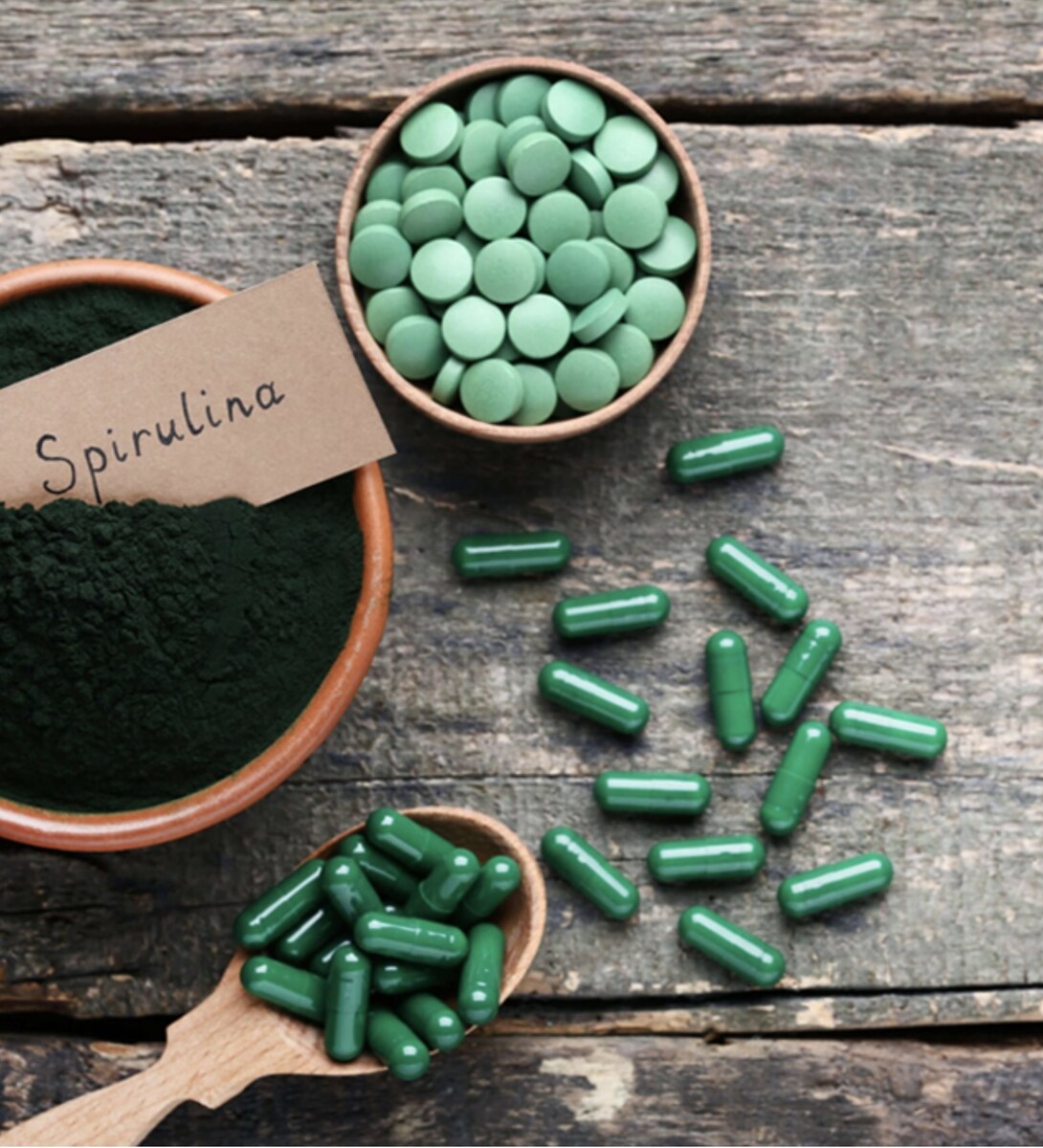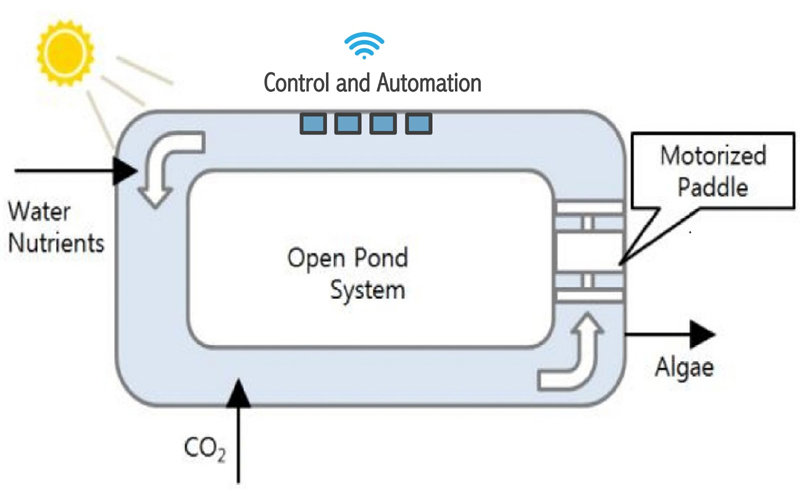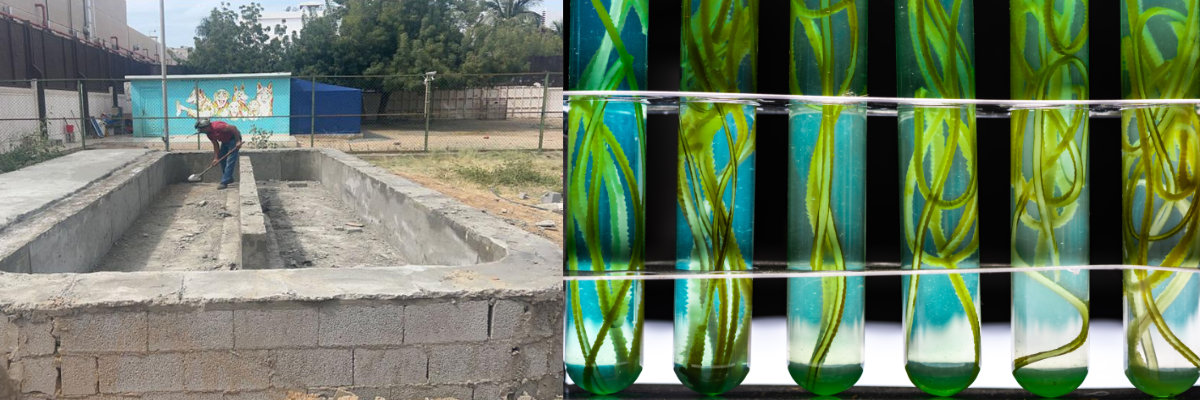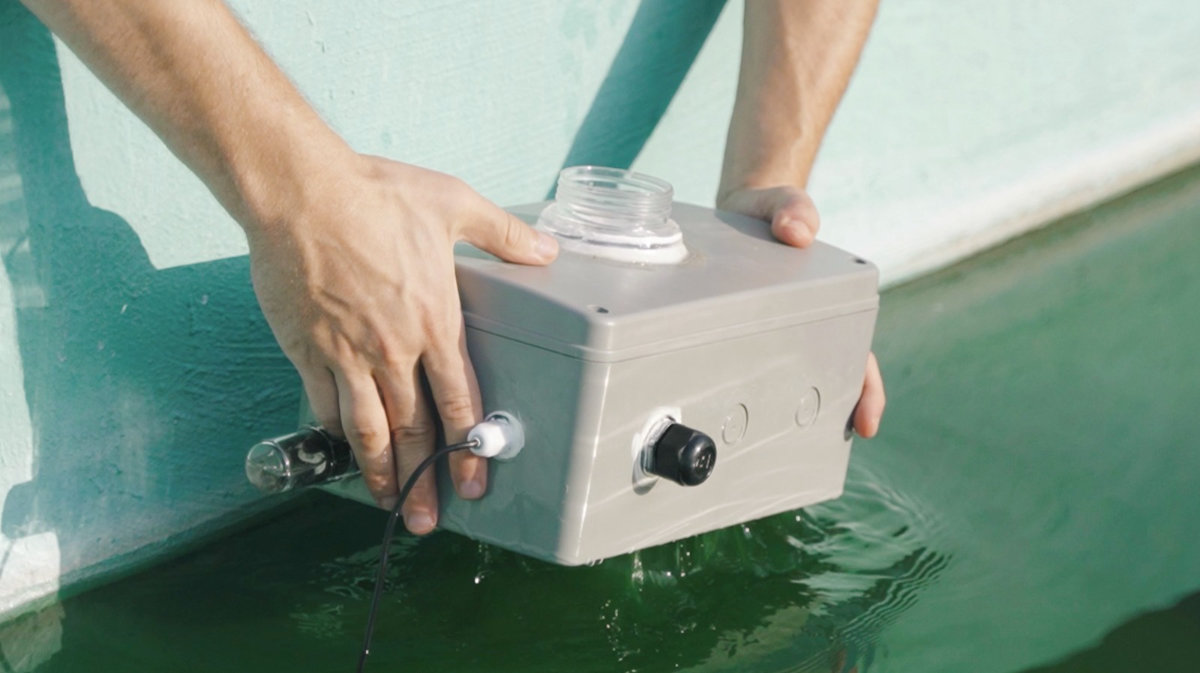RIYADH: If you have ever brushed against slimy green algae while swimming in the sea, you might not realize that this humble organism holds the key to some of the most promising innovations in food, energy and sustainability.
For Abdulmajeed Hashem, a Saudi chemist and founder of Green Desert Tech, algae is nothing short of revolutionary.
“Algae is the most water-efficient, land-efficient and protein-productive crop to exist in the world,” he told Arab News.

Hashem’s Jeddah-based startup is pioneering new methods to grow algae in the desert, using innovative outdoor cultivation systems that rely on advanced monitoring technology to overcome the environmental challenges of Saudi Arabia’s arid climate.
His journey began in Boston, where he earned a degree in chemical science before pursuing a master’s in organic chemistry at King Abdullah University of Science and Technology in Saudi Arabia.
Hashem’s initial focus was on macromolecule synthesis, but his passion for groundbreaking technologies led him to abandon his PhD to explore something that had “a bit more impact.”

Spirulina, a high-protein and nutrient-dense superfood, has been consumed by humans for centuries. (Greentech photo)
The turning point came from a conversation with his PhD adviser, Basem Moosa, who emphasized the untapped potential of algae as a renewable resource.
The notion fascinated Hashem, and after gaining hands-on experience in greenhouse technology at Red Sea Farms, another KAUST startup, he decided to launch Green Desert Tech.
Hashem’s choice to focus on algae was strategic. “If you look at the protein productivity per meter squared of algae, it’s higher than anything else that exists,” he said.
Algae’s water use is another major advantage. It can be grown using a fraction of the water required by traditional crops — about one-10th to one-15th — and the water it does consume can be fully recycled.

Diagram showing the Green Desert tech's pond.
In a water-scarce region like the Arabian Peninsula, where many essential crops are imported, algae’s water efficiency is a game changer. Moreover, algae thrives in high temperatures and abundant sunlight — two resources that Saudi Arabia has in spades.
The challenge, however, lies in the need for high humidity, something less common in the region. Despite this, Hashem is confident that with the right technology, algae cultivation can flourish.
Green Desert Tech’s primary innovation lies in its sensor technology, which monitors and controls environmental variables in algae pools.
DID YOU KNOW?
• From reducing emissions to providing alternative food sources, algae represents sustainability.
• Algae can grow using a fraction of the water needed for traditional crops.
• Green Desert Tech’s sensor box monitors real-time environmental variables, improving productivity.
Hashem said current methods for cultivating algae are outdated and inefficient.
Open pool systems, while simple and cost-effective, are not optimized for maximum productivity. On the other hand, photobioreactors — closed systems with controlled lighting — are highly efficient but expensive to scale.
“If you think of a future where algae is our main source of biofuel, food and feed, it can’t be done through bioreactors,” Hashem said. “Scaling algae production will have to happen through open pools.”

Open pool systems, left, are simple and cost-effective but not optimized for maximum productivity. Photobioreactors (right) are highly efficient but expensive to scale. (Green Desert & Shutterstock photos)
The company’s first step toward optimization is better monitoring. If you are to optimize a system, “you have to know what’s going on,” Hashem said.
Green Desert Tech has developed a sensor box that provides real-time data on the pool’s conditions, from temperature to algae density, with readings every 10 seconds.
“All of these sensors already exist,” Hashem said. “This is not something very novel. The way we integrate it into our system is.”
The sensor technology uses optics and transmittance to monitor algae growth. As algae grows, it absorbs more light, blocking signals from reaching a detector. By tracking the changes in these signals, the system can determine growth rates over time.

Green Tech's sensor technology uses optics and transmittance to monitor algae growth. (Green Desert photo)
In the future, Hashem hopes to implement microscopy for even more accurate monitoring. It will not just provide a quantitative sense of the algae growth rate but also qualitative information, he said.
With microscopy, Green Desert Tech could track cell health, detect contaminants, and even observe potential damage to algae cells in real time.
Once the system gathers data, it uses control mechanisms to adjust conditions in the pool, ensuring optimal growth. For example, when pH levels fluctuate, the system automatically dispenses sodium bicarbonate to stabilize the environment.
For Hashem, the significance of algae extends far beyond its agricultural potential. He believes it offers a viable solution to some of the world’s most pressing environmental challenges.
One of the most exciting aspects of algae cultivation is its ability to absorb carbon dioxide at rates far higher than traditional plant life.
A hectare of algae is 10 to 20 times more efficient at absorbing carbon dioxide than a hectare of trees, Hashem said. This makes algae a powerful tool in the global effort to combat climate change.

Algae could offer a nutritious and eco-friendly substitute to fish being used as animal feed. (Green Desert photo)
Algae also has potential as an alternative animal feed. Currently, about 70 percent of fish produced globally are used to make fish feed, which is unsustainable in the long run. Hashem believes algae could offer a nutritious and eco-friendly substitute.
“You have a process that essentially takes nothing from the Earth and even gives back,” he said. Algae not only cleans the air by absorbing carbon dioxide but also produces a high-value biomass that can replace traditional feed or energy sources.
Green Desert Tech is now moving from the prototype stage to a larger production scale. Having successfully tested its technology in a 50-square-meter prototype facility in Tahlia, Jeddah, the company is expanding to a new 10,000-square-meter facility in Huda Al-Sham.
Opinion
This section contains relevant reference points, placed in (Opinion field)
This new site will serve as a production center and a research and development hub, where the team can continue refining their technology while producing algae for commercial purposes.
Hashem envisions a future where several industries can benefit from algae. The goal is to make it easy and economically feasible for producers to grow algae, he said.
Green Desert Tech has already started selling sensor boxes to algae pool owners, sharing its cutting-edge technology with the broader industry. Hashem hopes that as more algae pools adopt these sensors, they can collectively build a vast data bank on algae cultivation.

Green Desert Tech founder Abdulmajeed Hashem. (Supplied)
“With AI (artificial intelligence) and generative AI models becoming more prevalent, the data is one of the most valuable commodities we will produce,” he said. As more data flows into the system, AI could help refine algae production methods, driving further efficiencies.
For Hashem, algae represents a cornerstone of sustainability. From reducing carbon emissions to providing alternative food sources, he believes it has the potential to reshape industries and ecosystems worldwide.
Green Desert Tech’s mission is to unlock that potential, making algae cultivation more efficient, scalable and accessible.



































